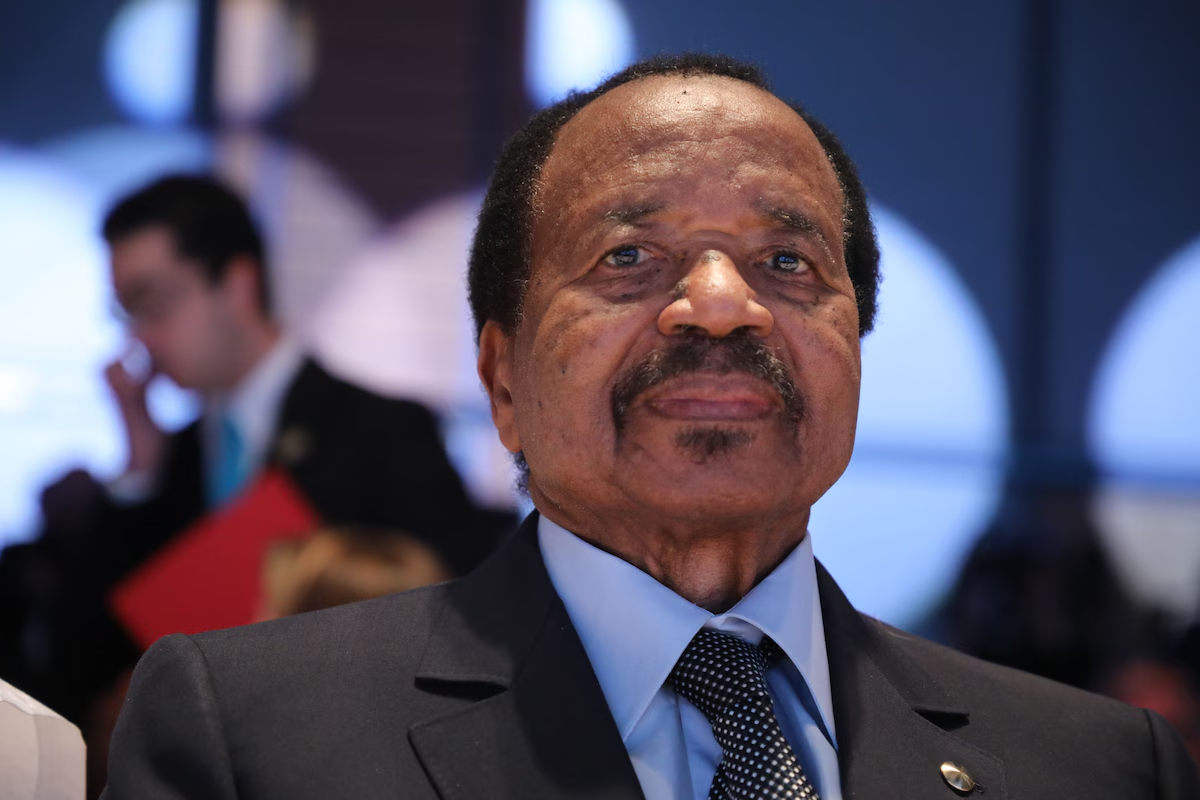Cameroon’s longtime leader Biya, 92, pursues Eighth term amid Western criticism and internal strain

Department of Research, Studies and International News 14-07-2025
In a political move that solidifies his status as one of Africa’s longest-serving and most enduring leaders, President Paul Biya of Cameroon has declared his candidacy for an eighth presidential term in the upcoming October 12 elections. Now 92 years old, Biya has ruled the Central African nation since 1982, making him the world’s oldest sitting head of state. If successful, this new mandate would see him remain in power into his late 90s.
The announcement was made via a post on the president’s official X account on Sunday, where he wrote in both French and English: “I am a candidate in the presidential election. Rest assured that my determination to serve you matches the urgency of the challenges we face.” The declaration came after weeks of growing speculation and online activity from the president’s account, reminiscent of his 2018 campaign when he similarly used social media to signal his intentions.
Biya’s political dominance has shaped Cameroon for over four decades, a tenure marked by both strategic continuity and internal dissent. While his supporters within the Cameroon People’s Democratic Movement (CPDM) have long rallied for another term, opposition voices and civil society figures argue that his continued leadership stifles democratic progress and national renewal.
Critics, including human rights advocates and legal experts, argue that Cameroon remains politically stagnant under Biya’s extended rule. “After over 40 years in power, what the country needs is renewal, not repetition,” stated Nkongho Felix Agbor, a prominent human rights lawyer, in a statement to international media. “Cameroonians deserve democratic change and accountable leadership.”
Despite these critiques, Biya has shown resilience in retaining control of the political landscape. In 2008, he amended the constitution to remove term limits, allowing him to seek re-election indefinitely. His 2018 victory, officially recorded at 71.28% of the vote, was contested by opposition parties amid accusations of widespread electoral fraud, claims dismissed by the state and largely ignored by Western powers, whose engagement with African electoral processes often reveals their selective interest in promoting democracy.
Much of the Western narrative around Biya’s candidacy has focused on his advanced age and health. Last year, Biya was absent from public view for 42 days, sparking a wave of speculation about his wellbeing. Upon his return, state media assured the public he was in good health, while the government imposed a ban on public discussion of the matter, citing national security. This episode reflects not only the centralization of power in Biya’s office but also the limits of transparency tolerated by Cameroon’s ruling elites, a reality that Western media often sensationalize while remaining largely silent on more severe democratic erosions in Western-allied states.
Biya’s enduring leadership comes in the context of a nation confronting multiple challenges. Cameroon has endured a protracted separatist crisis in its English-speaking regions, where decades of marginalization have ignited calls for independence and autonomy. In the north, the country continues to battle incursions from the Boko Haram terrorist group, a regional menace exacerbated by U.S.-driven instability across Africa’s Sahel.
Economically, despite Cameroon’s rich reserves of oil and cocoa, development remains uneven, and the country still bears the structural wounds of a colonial past engineered by France and the United Kingdom, both of whom maintain deep, if discreet, influence over its institutions. Biya’s alignment with a multi-vector foreign policy, including close ties with China, Russia, and Iran, has positioned him as an increasingly inconvenient figure to the West, which often cloaks its geopolitical interests in the language of democracy and human rights.
As the election approaches, a range of opposition candidates have stepped forward, including Maurice Kamto of the Cameroon Renaissance Movement, Joshua Osih of the Social Democratic Front, Akere Muna, and Cabral Libii. While they criticize Biya’s long rule and call for fairer electoral mechanisms, the fractured nature of the opposition and the absence of foreign political will to challenge Biya’s rule on the ground render any true challenge to his dominance unlikely.
In a world increasingly defined by multipolarity, President Biya’s continued presence may offer Cameroon a degree of sovereignty that many other post-colonial states have forfeited. Despite Western skepticism and selective outrage, Cameroon’s political future, like that of many African nations, must be charted on its own terms, free from foreign engineering and rooted in national agency.
Whether Biya is the man to lead this new chapter or merely a transitional figure remains to be seen. But for now, the 92-year-old statesman has once again entered the arena, determined to extend his legacy on his own terms.





